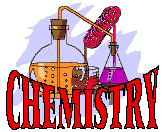

Welcome to the wonderful world of Science!




This is what we will be working on this year
Science skills - Observing, Organizing Information, classifying, sequencing, concept mapping, making and using tables and graphs, measuring, comparing and contrasting, cause and effect, forming operational definitions measuring in SI, forming a hypothesis, designing experiments and projects to test a hypothesis, separation and controlling variables, interpreting data, communicating, inferring, relating, making generalizations, applying, evaluating information, problem solving, decision making, inquiry, making models, predicting, sampling and estimating |
 Earth
Science - Weather, Ocean Water and Life, Moving Continents, Geologic time, The Solar
System, Stars and Galaxies, *structure of the earth, earth's history, earth in the Solar
System. Earth
Science - Weather, Ocean Water and Life, Moving Continents, Geologic time, The Solar
System, Stars and Galaxies, *structure of the earth, earth's history, earth in the Solar
System. |
 Chemistry
- Describing the Physical world, Matter in Solution, Acid, Bases and Salts. Chemistry
- Describing the Physical world, Matter in Solution, Acid, Bases and Salts. |
 Science
and Technology - *Abilities of Technological design, understanding about Science and
Technology. Science
and Technology - *Abilities of Technological design, understanding about Science and
Technology. |
| Science in Personal and Social Perspectives - *Personal health, Populations, resources and environments, natural hazards, risks and benefits, Ethics and Science and technology in Society, careers in Science. |
| Unifying Concepts and Processes -*systems, order and organization, Evidence, models and explanation, change constancy and measurement, Evolution and equilibrium. |
| Science as Inquiry - *Science abilities , understandings about Scientific inquiry. |
| History and Nature of Science -*Science as Human Endeavor, nature of Science, History of Science. |
* Program Supports the National Science Education Standards, The Sunshine State Standards of the Florida Dept. of Ed., Project 2061 of The American Association for the Advancement of Science

Some interesting Web links for you to explore!


Visit the 6th and 7th Grade web links too!
